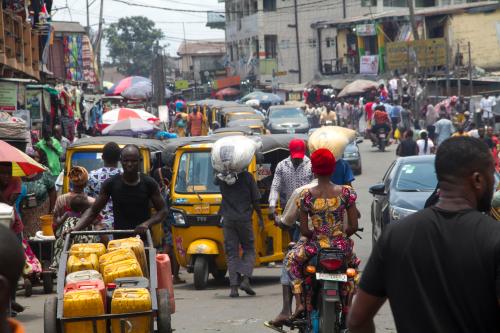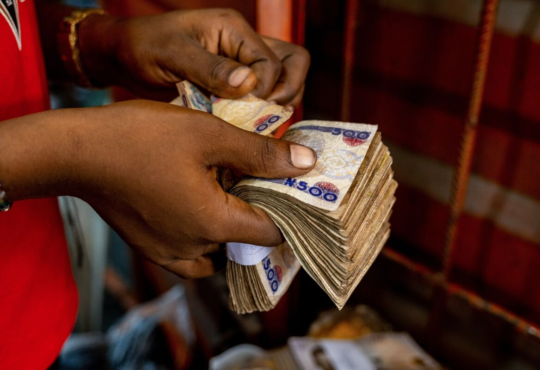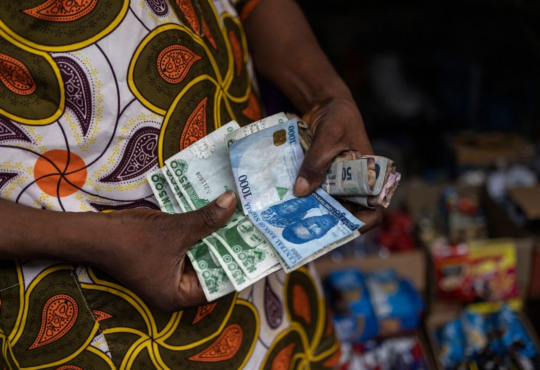INTERVIEW: Nigeria's colossal Dangote refinery to start operating in October at 370000 b/d – S&P Global
The UK’s Grangemouth refinery is set to cease operations in the coming years to be converted into a…
Russian diesel continues to flow to Brazil and volumes are expected to remain steadily strong in…
Maintaining trade measures and expanding access to reliable, renewable energy in the US are…
INTERVIEW: Nigeria's colossal Dangote refinery to start operating in October at 370,000 b/d
Jet Fuel
Grangemouth’s closure: insights into the changing global refining landscape
APPEC 2024
Russian diesel flows to Brazil remain strong, while Petrobras slashes prices
Dated Brent Price Assessment
Insight Conversation: Ezran Mahadzir, Petronas LNG
Refinery will start with diesel, jet fuel, then gasoline after ramp-up
Dangote buying crude from traders, plans to export to US, Europe
String of challenges, including swamp clearance, delayed project
The long-awaited Dangote refinery — billed as a game-changer for Nigeria and sub-Saharan Africa — will receive its first cargo of crude in the next two weeks and will begin producing up to 370,000 b/d of diesel and jet fuel from October, a senior company executive told S&P Global Commodity Insights.
Receive daily email alerts, subscriber notes & personalize your experience.
In a wide-ranging exclusive interview, Dangote Group Executive Director Devakumar Edwin, who is overseeing the $19.5 billion refinery, outlined a detailed production timeline, shed light on crude and product flows and laid out a litany of complications and delays to the project since it was first mooted in 2013.
“Right now I’m ready to receive crude,” said Edwin, who previously ran Dangote Cement. “We are just waiting for the first vessel. And so as soon as it comes in we can start.”
At its full planned capacity of 650,000 b/d, the refinery would make Nigeria self-sufficient in fuels and leave plenty more for export. Currently, Africa’s biggest producer imports all its refined products, eroding its foreign exchange reserves. Yet delays and cost overruns led many to question whether Aliko Dangote — Africa’s richest man — would ever deliver. Meanwhile, fuel prices have skyrocketed in Nigeria after President Bola Tinubu scrapped a costly subsidy in late May.
Edwin said the refinery, which was officially inaugurated by outgoing president Muhammadu Buhari in May, will launch in phases, beginning with 350,000-370,000 b/d of diesel and jet fuel by October, when the crude distillation unit, sulfur block and hydrogen plant should be online. Then on Nov. 30, he said, the refinery will start the phased ramp-up to 650,000 b/d, around half of it gasoline, the key area of Nigerian fuel demand.
S&P Global analysts predict the refinery will not hit full operating capacity until mid-2025, according to a recent note, with further delays still possible. Still, forecasts from S&P Global suggest Nigerian gasoline production will exceed imports until the 2040s as a result of the refinery.
Although the refinery was designed to process light sweet Nigerian crude, state-owned Nigerian National Petroleum Corp, which is a shareholder in the project, cannot supply the refinery until November, Edwin said, so Dangote is buying oil from trading houses. Vitol and Trafigura recently carried out inspections of the plant, he said.
“At the last minute [NNPC] said, ‘We have actually committed our crude on forward basis to someone else’, so immediately they don’t have the crude,” he said. This is a temporary issue, and the refinery should run on exclusively Nigerian crude by November, he said.
That Nigerian oil will be purchased in US dollars, not naira as some reports had suggested, because it is located in a free zone on the outskirts of Lagos, Edwin said. However, NNPC will supply some crude at knockdown prices due to its equity stake.
Edwin said the scale of the refinery meant being “solely dependent on Nigerian crude would not be advisable”, meaning the refinery can process most African crudes — apart from heavy Angolan grades — as well as Middle Eastern Arab Light and even US light tight oil.
“We can take even some of the Russian grades… if the global system opens up to allow us to receive [them],” he said.
Nor is Dangote only targeting the Nigerian market with its refined products. “Basically if you look at our production profile, 50% of my production will meet 100% of the requirement of the country,” Edwin said. Excess gasoline – which will be 10 ppm sulfur Euro 5 quality — will be exported to other African markets as well as the US and South America, although the volumes will be relatively small, he said.
Meanwhile, jet fuel will be exported to Europe and diesel will be sold in sub-Saharan Africa.
In Q1 2023, Nigeria imported 383,400 b/d of gasoline and diesel, according to data from S&P Global Commodities at Sea. Imports fell to 193,000 b/d in Q2 after the subsidy removal.
Edwin said refined products can be evacuated from the refinery by road or by sea, with the two routes able to handle 80% and 75% of production respectively. Wary of theft and vandalism of pipelines in Nigeria in recent years, which is claiming 400,000 b/d of crude according to NNPC, Dangote’s only pipelines connect the refinery to single buoy moorings in its purpose-built port, which Edwin said can handle VLCCs and even ULCCs. “I can load a Suexmax in a day, I can offload a VLCC in a day,” he said.
The company is also widening the road connecting the refinery to the expressway. That job is 70% complete, Edwin said.
Although discussions started as far back as 2013, Edwin said Dangote only began physical construction five years ago following a string of delays and mishaps. The first plot of land in a free zone in Ogun state was ditched following potentially “disastrous” political interference, he said.
After buying 33 square km of land in Lagos state for $100 million, the team found more than 70% of the plot was swamp and spent a year clearing it. Then, faced with the possibility of rising sea water claiming the land in the next 70 years, Dangote spent $50 million elevating the land by 1.5 meters. “We had to hire the world’s largest dredger, second largest dredger, and third largest dredger to… pump in about 65 million cubic meters of sand.”
The company also had to construct a port capable of receiving extremely heavy assembled equipment because it lacked the infrastructure to assemble equipment in Nigeria, import 200,000 pikes to prevent sinking, buy 320 cranes and invest in a 10 million ton per year granite quarry.
Ultimately delays proved a blessing, Edwin said, because “we had time to increase the capacity of the refinery [and] improve efficiencies in the design.” What will be the world’s largest single-train refinery began life as a 300,000 b/d project, Edwin said.
Edwin, who joined Dangote Group in 1992, said the refinery would be “enormously beneficial to the country” by establishing a reliable supply of “environmentally-friendly” refined products and bringing “a huge amount of foreign exchange into the country.”
It will also ease a fuel supply crisis in import-dependent West Africa, where Nigeria’s recently-scrapped fuel subsidy created a thriving illicit market for gasoline amid price fluctuations.
“The money will be coming back in, and it will go for further investments,” Edwin said. “[Aliko Dangote] is from Nigeria and his focus is always on Nigeria.”
To continue reading you must login or register with us.
It’s free and easy to do. Please use the button below and we will bring you back here when complete.






